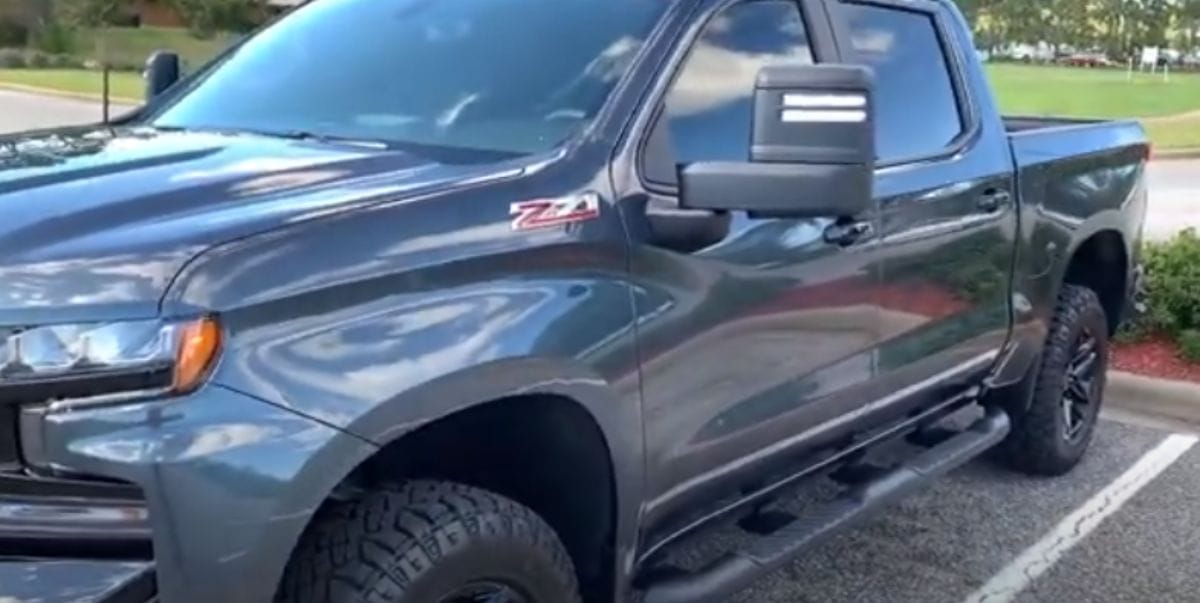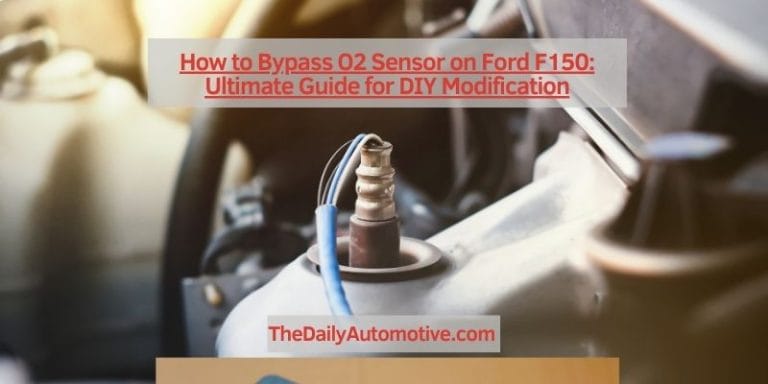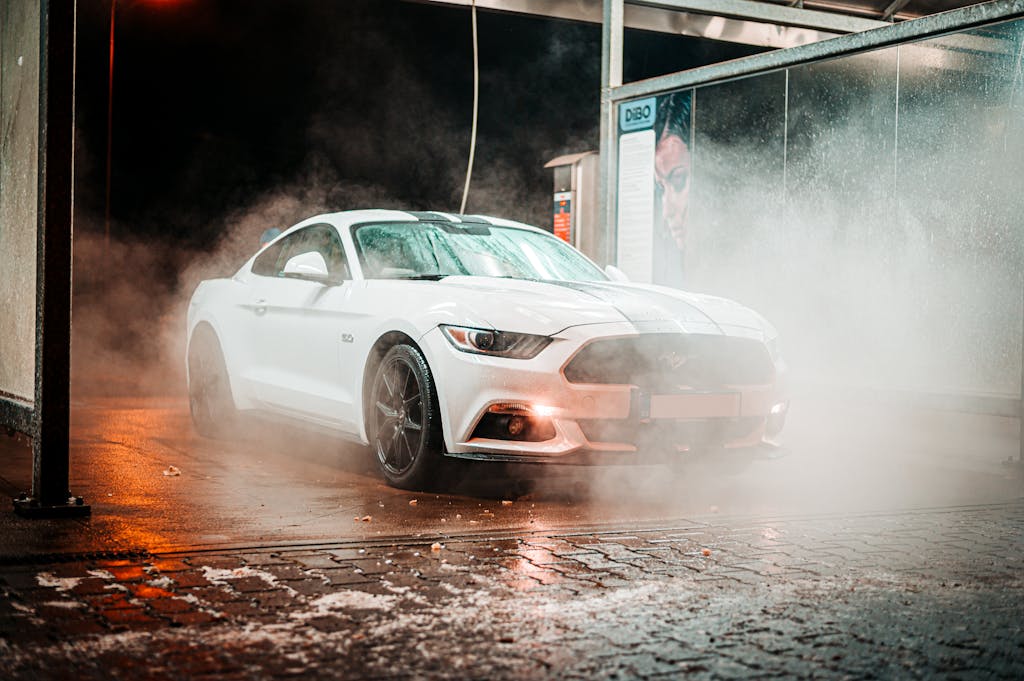What Would Cause a Ford F150 to Not Start: Troubleshooting the Most Common Issues
A Ford F150 may not start due to a worn-out battery or a faulty starter. Several factors could cause a Ford F150 to fail to start, including a weak or dead battery, a malfunctioning starter, fuel system issues, or ignition system problems.
In some cases, the issue may be related to the alternator, spark plugs, or even the fuel pump. It’s important to diagnose the specific cause of the starting issue before attempting any repairs. A professional mechanic can perform a thorough inspection to determine the underlying problem and recommend the appropriate solution.
By addressing the root cause, you can ensure your Ford F150 starts reliably and efficiently.
Common Causes Of Ford F150 Starting Issues
The Ford F150 is a reliable and popular truck, but like any vehicle, it may experience starting issues. Understanding the common causes of Ford F150 starting issues can help you diagnose and address problems with your vehicle. Here are some of the most common issues that can prevent a Ford F150 from starting.
Dead Battery
A dead or weak battery is a common cause of starting issues in the Ford F150. If the battery is old or has not been properly maintained, it may not have enough power to start the engine. Additionally, corroded battery terminals can also prevent effective power flow to the starter motor.
Faulty Starter Motor
A faulty starter motor can also prevent a Ford F150 from starting. Over time, the starter motor can wear out, resulting in difficulty starting the engine. If you hear a clicking noise when you turn the key, it could indicate a problem with the starter motor.
Fuel System Problems
Issues with the fuel system, such as a clogged fuel filter or a faulty fuel pump, can also prevent the Ford F150 from starting. If the engine is not receiving an adequate supply of fuel, it will struggle to start and run properly.
Ignition System Malfunction
If the ignition system is malfunctioning, it can cause starting issues in the Ford F150. Problems with the ignition switch, ignition coil, or spark plugs can prevent the engine from starting or running smoothly.
Symptoms Of A Failing Ford F150
A failing Ford F150 can exhibit various symptoms that indicate potential problems, leading to a no-start situation. Identifying these symptoms early can help prevent a breakdown and ensure timely maintenance or repairs. Below are some common symptoms to watch out for:
Engine Cranks But Won’t Start
If you notice that your Ford F150’s engine cranks but doesn’t start, it could indicate issues with the fuel system, ignition system, or a faulty starter motor. This symptom may also be caused by a faulty fuel pump or clogged fuel filter, preventing the engine from receiving the proper fuel supply.
Clicking Sound When Turning The Key
A distinct clicking sound when turning the key may indicate a weak or failing battery. This sound points towards an inadequate power supply to start the engine and should be promptly addressed to avoid a no-start situation.
Engine Misfires
If your Ford F150 experiences engine misfires, it could be a sign of a faulty spark plug, ignition coil, or fuel injector. This symptom may result in difficulty starting the engine and should be diagnosed and resolved to ensure optimal performance.
Dashboard Warning Lights
Dashboard warning lights such as the check engine light, oil pressure light, or battery light can provide crucial indications of potential issues. These lights serve as early warnings of engine-related problems, prompting the need for a diagnostic assessment to prevent starting issues.

Diagnosing Ford F150 Starting Problems
When your Ford F150 won’t start, it can be frustrating and leave you stranded. To find the root cause of the issue, diagnosing the starting problems is crucial. Whether it’s the battery, starter motor, fuel system, or ignition system, identifying the specific problem is the first step toward getting your F150 back on the road.
Testing The Battery
A weak or faulty battery is a common culprit for an F150 not starting. To diagnose the battery, begin by checking the voltage using a multimeter. A fully charged battery should read around 12.6 volts. Anything significantly lower may indicate a failing battery. Additionally, examine the battery terminals for corrosion and ensure they are securely connected.
Checking The Starter Motor
If the battery is in good condition, the starter motor could be the issue. Start by verifying that the battery is delivering power to the starter motor. If power is reaching the starter motor, but the engine isn’t cranking, the starter motor might need to be replaced. Ensure the connections to the starter are clean and secure as well.
Inspecting The Fuel System
Inadequate fuel delivery can also prevent the F150 from starting. Check the fuel pump and fuel filter for any signs of malfunction. Verify that fuel is reaching the engine by inspecting the fuel lines and checking the fuel pressure. Additionally, assess the fuel injectors for any clogs or leaks that could be inhibiting proper fuel delivery.
Assessing The Ignition System
If the battery, starter motor, and fuel system are all functioning properly, the ignition system may be to blame. Start by checking for sparks at the spark plugs. Use a spark plug tester to ensure that the ignition coil is sending enough voltage to produce a spark. Also, inspect the distributor cap, rotor, and ignition wires for any signs of wear or damage.
Diy Solutions For Ford F150 Starting Troubles
If you’re having trouble starting your Ford F150, there are a few common issues that could be causing the problem. Before taking your truck to a mechanic, try these DIY solutions to troubleshoot and potentially resolve the starting troubles.
Jump-starting The Battery
If your Ford F150 is not starting, the first thing to check is the battery. A weak or dead battery is a common reason for a no-start situation. You can attempt to jump-start the battery using jumper cables and another vehicle. Ensure the cables are connected securely and follow the proper steps for jump-starting a vehicle.
Replacing The Starter Motor
If jump-starting the battery does not resolve the issue, the starter motor may be the culprit. Over time, the starter motor can wear out and fail to crank the engine. If you are familiar with automotive repairs, you can attempt to replace the starter motor yourself with the help of a service manual and the appropriate tools. However, if you are unsure, it’s best to seek professional assistance.
Cleaning/replacing Fuel Filters
Another possible reason for starting troubles in a Ford F150 is a clogged fuel filter. A clogged fuel filter can restrict fuel flow to the engine, causing starting issues. Check the condition of the fuel filter and consider cleaning or replacing it if necessary. Proper maintenance of the fuel filter can help ensure a steady fuel supply to the engine, improving starting reliability.
Testing And Replacing Spark Plugs
Faulty or worn-out spark plugs can also contribute to starting problems. Over time, spark plugs can become fouled or worn, affecting the ignition process. Use a spark plug tester to check the condition of the spark plugs and replace any that are defective. Replacing old spark plugs with new ones can improve the ignition system’s performance and contribute to smoother starts.
Seeking Professional Assistance
If your Ford F150 is experiencing starting issues despite several DIY attempts, seeking professional assistance becomes crucial. Qualified technicians and mechanics possess the expertise, diagnostic tools, and industry knowledge required to accurately identify and resolve complex starting problems effectively. Consulting with professionals ensures that your vehicle receives the necessary care and attention, addressing the root cause of the non-starting issue.
Diagnostic Tools And Equipment
Professional technicians have access to advanced diagnostic tools and equipment designed specifically for troubleshooting and identifying starting issues in Ford F150 vehicles. These tools enable thorough inspections of the vehicle’s electrical system, ignition components, and fuel delivery system to pinpoint the exact cause of the non-starting problem.
Service Center Or Mechanic
Visiting a certified service center or reputable mechanic specializing in diagnosing and repairing Ford vehicles is essential. These professionals possess the extensive knowledge and experience required to address various non-starting issues effectively. Additionally, their familiarity with Ford F150-specific problems allows for a precise diagnosis and accurate repairs.
Cost-efficient Repairs
Seeking professional assistance for Ford F150 non-starting issues ensures cost-efficient repairs. Professionals can accurately diagnose the problem, ensuring that only necessary repairs and replacements are performed. This targeted approach helps minimize unnecessary expenditures, allowing for a cost-effective resolution of the non-starting problem.
Preventive Maintenance For Future Reliability
After resolving the non-starting issue, professionals can provide guidance on preventive maintenance measures to enhance the future reliability of your Ford F150. This may include recommendations for regular inspections, scheduled maintenance, and proactive measures to prevent potential non-starting issues in the future.
Frequently Asked Questions On What Would Cause A Ford F150 To Not Start
What Are Common Reasons Why A Ford F150 Won’t Start?
A Ford F150 may not start due to a faulty fuel pump, battery issues, or a malfunctioning ignition system. These common issues can cause starting problems and should be checked by a qualified mechanic for proper diagnosis and repair.
How Can I Troubleshoot A Ford F150 That Won’t Start?
To troubleshoot a non-starting Ford F150, start by checking the battery, inspecting the ignition system, and testing the fuel pump. If these components are functioning correctly, it’s recommended to seek professional assistance for further diagnosis and repair.
What Steps Can I Take To Prevent Ford F150 Starting Issues?
Regular maintenance, including battery checks and fuel system inspections, can help prevent starting issues in a Ford F150. Additionally, keeping the ignition system in good condition and addressing any warning signs promptly can help avoid future starting problems.
Conclusion
A Ford F150 not starting can be caused by various factors, including issues with the battery, fuel system, or ignition components. It’s crucial to perform regular maintenance and address any potential problems promptly to ensure the vehicle’s reliable performance. By understanding the common reasons for starting issues, F150 owners can take proactive steps to avoid such situations.






